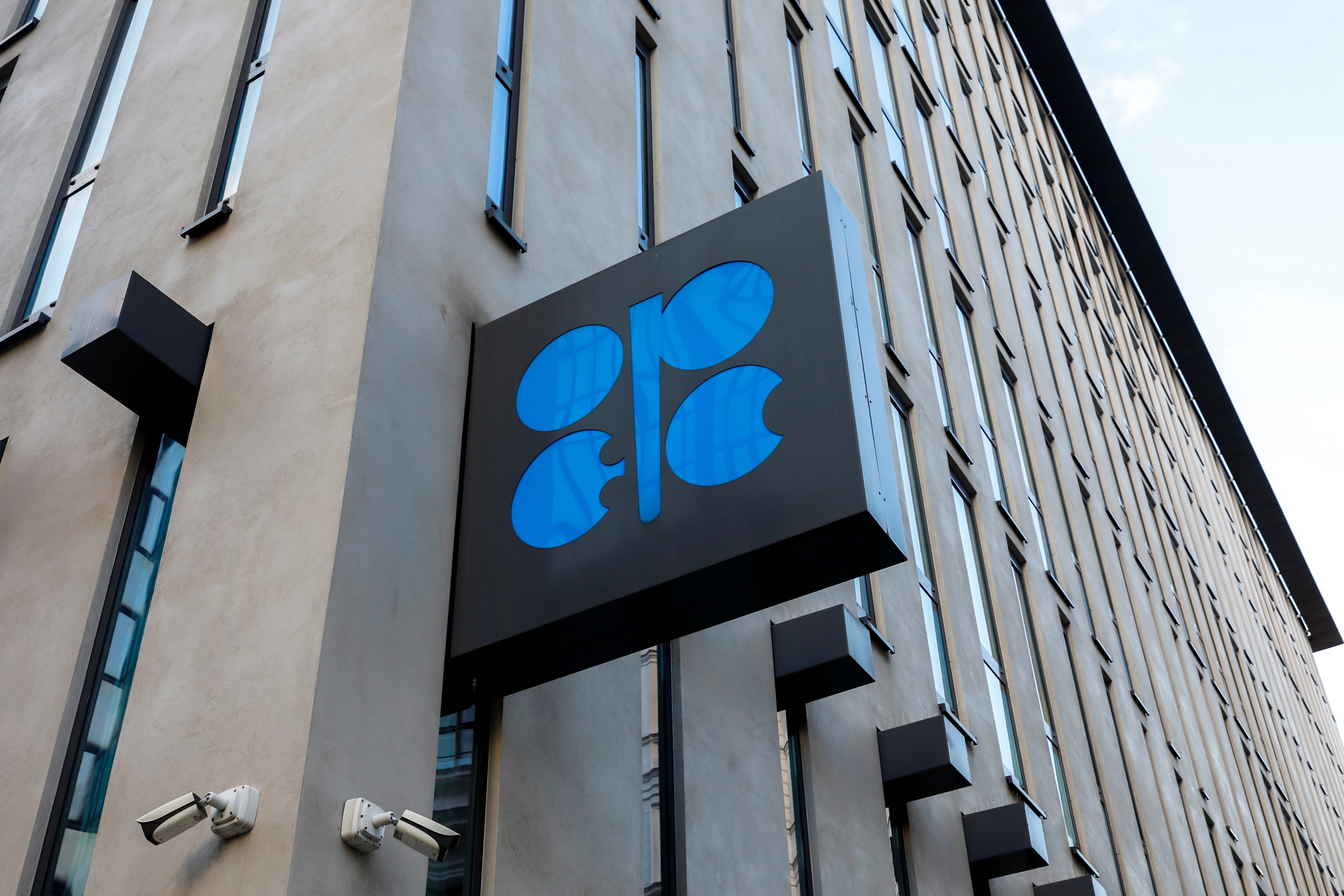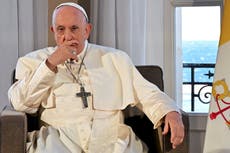Oil-producing countries claim fossil fuels are being ‘stigmatised’ ahead of key UN climate talks
Oil giants Saudi Arabia, UAE and Iraq say there is ‘a case for us to be in oil and gas’

Your support helps us to tell the story
From reproductive rights to climate change to Big Tech, The Independent is on the ground when the story is developing. Whether it's investigating the financials of Elon Musk's pro-Trump PAC or producing our latest documentary, 'The A Word', which shines a light on the American women fighting for reproductive rights, we know how important it is to parse out the facts from the messaging.
At such a critical moment in US history, we need reporters on the ground. Your donation allows us to keep sending journalists to speak to both sides of the story.
The Independent is trusted by Americans across the entire political spectrum. And unlike many other quality news outlets, we choose not to lock Americans out of our reporting and analysis with paywalls. We believe quality journalism should be available to everyone, paid for by those who can afford it.
Your support makes all the difference.The world’s biggest oil-producing countries are calling for oil and gas to not be stigmatised in climate discussions just weeks before the UN’s Cop28 summit will take place in UAE.
Oil giants Saudi Arabia, UAE and Iraq tried to make a case for fossil fuels at the UN Climate Week taking place in Saudi capital Riyadh on Sunday.
The ministers of the three largest members of the Organisation of Petroleum Exporting Countries (Opec) made the comments at the event in which the chief of this year’s UN climate negotiations and the chief of major oil company Adnoc, Sultan Al Jaber, was also present.
The Cop28 conference this time has been mired in controversy as climate activists and scientists have been raising concerns over the role of the UAE, an oil state, as the host of the climate negotiations.
The choice of Mr Jaber to lead the summit also drew criticism from environmental campaigners and even by the Pope who called out the conflict of interest recently.
The Opec leaders said the industry – responsible for the majority of planet-heating greenhouse gas emissions – should not be ignored or stigmatised in climate discussions and that the industry has a role to play in an orderly energy transition.
“There is a case for us to be in oil and gas,” Saudi energy minister Prince Abdulaziz bin Salman told the audience.
“The three of us here as major hydrocarbon producers also have a responsibility to the world to provide the transition with enough hydrocarbon resources to make sure we are transitioning at a responsibly priced manner,” UAE energy minister Suhail al-Mazrouei said in a panel of the three countries.
Responding to growing calls to halt investments in new oil projects, Opec secretary general Haitham Al Ghais said: “We believe this can only lead to heightened volatility which will hinder economic development and exacerbate energy poverty.”
The UAE will host this year’s climate summit in Dubai between 30 November and 12 December.
Mr Jaber, the upcoming Cop28 summit’s president, serves as the CEO of the state-run Abu Dhabi Oil Co, which has the capacity to pump 4 million barrels of crude oil a day and hopes to reach 5 million barrels a day.
At the UN Climate Week event, Mr Jaber defended the UAE’s position and vowed that the negotiations will bear a strong outcome.
“We have had 27 COPs, and you might be surprised to learn that 17 of them have been hosted in fossil fuel-producing nations,” Mr Jaber said.
“The fact is, energy is fundamental to everyone, everywhere.”
“Cop28 will deliver transformational outcomes for this region, and for the world,” Mr Jaber said in his opening remarks on Sunday.
He also argued for the involvement of oil companies at the climate negotiations.
Last week, speaking at an annual oil and gas conference in UAE, he called on oil and gas companies to be “central to the solution” to fighting the climate crisis, even as the industry boosts its production to enjoy rising global energy prices.
Cop28 will once again see global leaders gather to find ways to reduce planet-heating pollution and accelerate climate action as the world continues to face the accelerated impacts of increasing temperatures.
This year’s summit is also crucial as it comes after months of record-breaking heat in the northern hemisphere marked by heatwaves, wildfires and drought.
Reports so far show countries are way off track to meet the UN target to keep the rise in global temperatures below 2 degrees Celsius (3.6 degrees Fahrenheit) above pre-industrial levels and pursue efforts to limit it to 1.5C because of continued use of fossil fuels.
Additional reporting by agencies



Join our commenting forum
Join thought-provoking conversations, follow other Independent readers and see their replies
Comments